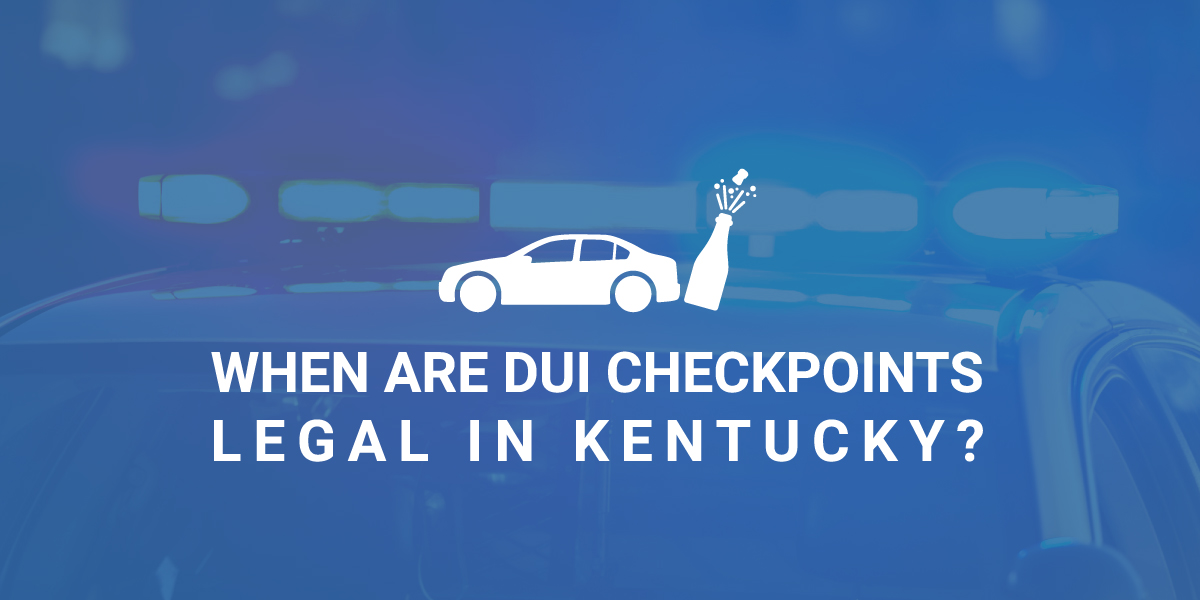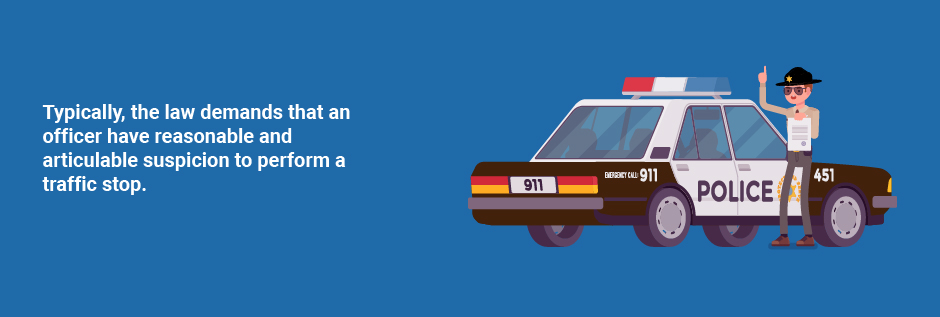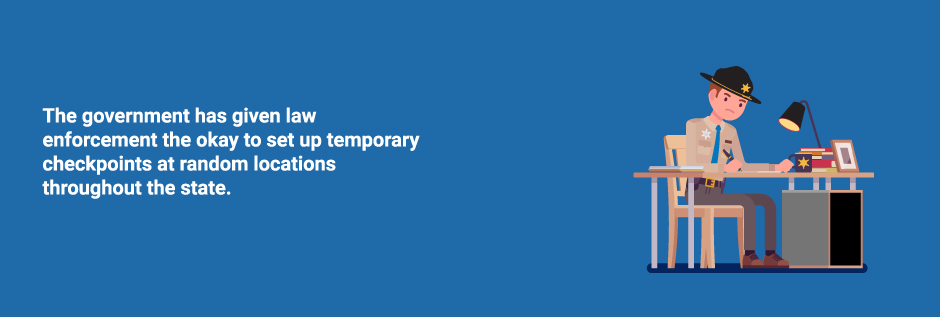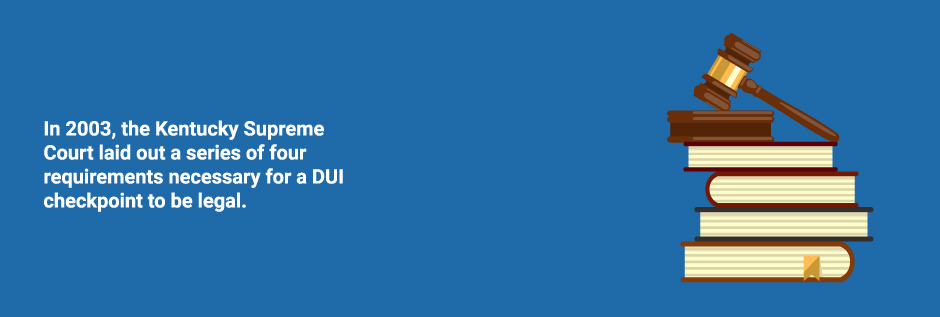
DUI checkpoints (also referred to as roadblocks or mobile checkpoints) are police traffic stops that are not tied to specific or individual suspicions. Officers use checkpoints to check for intoxication and impairment in an effort to prevent drunk driving accidents. Checkpoints are only temporary and the locations for checkpoints are selected at random. Checkpoints can be set up at any time, but they are far more common during holidays when more individuals are out drinking at bars and parties.
According to the CDC, sobriety checkpoints can reduce alcohol-related crashes by as much as 17%. However, the act of stopping everyone at an intersection runs against the American grain, especially when the Fourth Amendment protects against unreasonable searches and seizures. Are DUI checkpoints legal in Kentucky, and if so, when are they legal?
Isn’t Reasonable Suspicion Required For A Stop?

Typically, the law demands that an officer have reasonable and articulable suspicion to perform a traffic stop. Under most circumstances, a stop without reasonable suspicion or evidence would be considered unlawful. However, the U.S. Supreme Court has ruled that the degree of intrusion involved in sobriety checkpoints is outweighed by the dangers of drunk driving. Thus, DUI checkpoints are an exception to the search and seizure provisions outlined in the U.S. Constitution.
Are DUI Roadblocks In Kentucky Legal At All?
Yes, DUI roadblocks or checkpoints are legal in Kentucky. The government has given law enforcement the okay to set up temporary checkpoints at random locations throughout the state. In most instances, the location of checkpoints are unknown, but you may be able to find a few using online tools such as duiblock.com or roadblock.org.
Of course, DUI checkpoints sit on a very fine line between what is legal and what is illegal. The government errs on the side of caution when it comes to granting citizens freedom from unreasonable searches and seizures. It’s not uncommon for a particular checkpoint to be ruled illegal by the courts.
DUI Checkpoint Requirements As Outlined By The Kentucky Supreme Court
In 2003, the Kentucky Supreme Court laid out a series of four requirements necessary for a DUI checkpoint to be legal. The requirements are known as the Buchanon Requirements and are as follows:
- Decisions regarding location, time, and procedures governing a checkpoint need to be determined by supervisory law enforcement officers. Important decisions cannot be governed by low ranking officers. Low ranking officers wishing to set up a checkpoint need to seek permission from a supervisor first. The location for the checkpoint also should not affect public safety.
- Any law enforcement officers working the checkpoint need to comply with all procedures established by their superiors, so that each motorist passing through the checkpoint receives the same treatment. It’s imperative that a procedure is put in place to prevent field officers from being able to decide with unfettered discretion which vehicles to stop and how the stop is handled.
- The nature of a checkpoint should be clear to approaching motorists. The state government advises placing signs warning of a checkpoint ahead in front of the checkpoint. At least some of the officers at the checkpoint should also be in uniform with marked patrol cars.
- The length of stops can be used as a determining factor in deciding how intrusive a checkpoint is. Officers should not detain a motorist any longer than necessary to perform a quick examination of the vehicle along with a check for license and registration. If an officer has reasonable suspicion that a driver has violated the law, that driver should be pulled off to the side so that other motorists can proceed through the checkpoint.
The court has noted that the four factors outlined aren’t exhaustive when considering the validity of a checkpoint. The court has also made it clear that violation of any one factor does not necessarily result in a constitutional violation. Still, failure to meet the requirements outlined above may render a checkpoint illegal.
Baldani Law Group Is Here To Help
If you’ve been arrested a DUI checkpoint, a criminal defense attorney can help fight to reduce penalties or have the charges dropped entirely. Your attorney can also investigate the checkpoint to determine whether or not it was conducted legally. Furthermore, when you work with Baldani Law Group, you’ll be working with a team of attorneys rather than working with one single attorney.
The lawyers of Baldani Law Group have over 100 years of combined legal experience. The only thing better than working with an attorney who will fight tooth and nail to protect your rights is working with a team of them. Contact us by calling (859) 259-0727 or filling out a contact form schedule an initial consultation.

